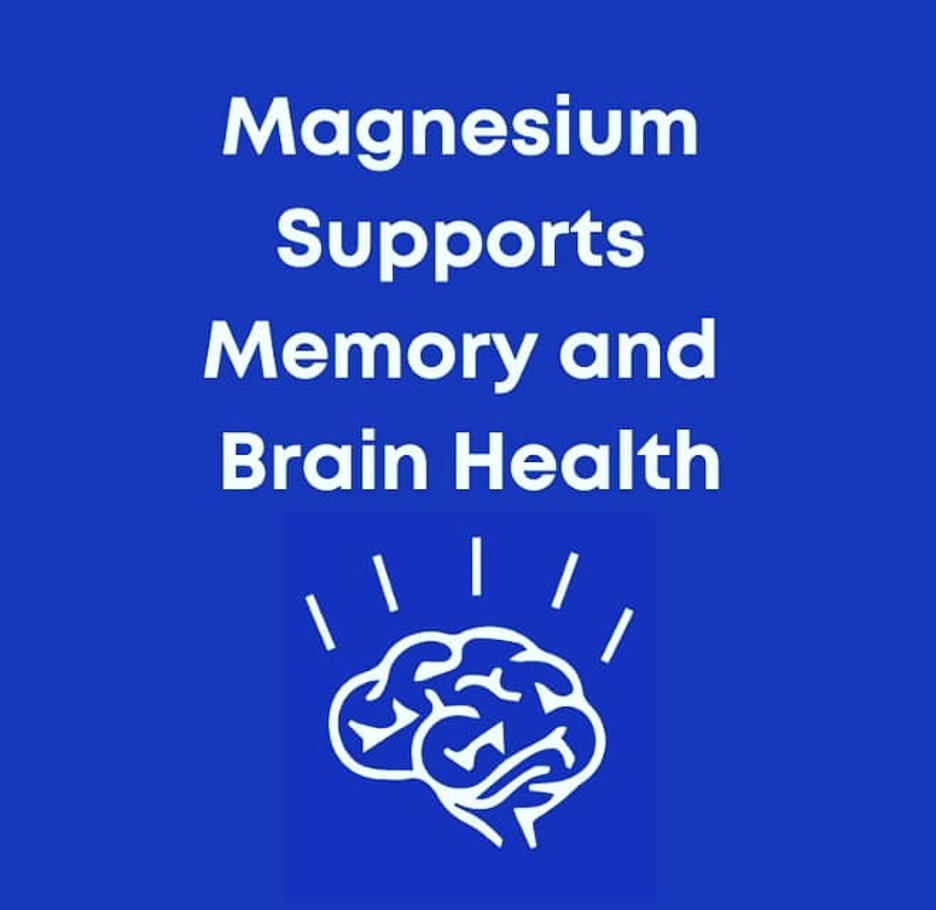Magnesium is a vital mineral because of its diverse and critical role in various bodily functions. Its benefits extend far beyond what many realize. This blog explores 10 benefits of magnesium, with a particular focus on how it helps brain health. It also includes a list of magnesium-rich foods to add to your diet.
This essential mineral is often overlooked. Unfortunately, many people don’t consume enough magnesium in their diet. Poor dietary choices, soil depletion, and certain medical conditions can lead to magnesium deficiency.
10 Benefits of Magnesium
The following are 10 Benefits of Magnesium:
Enhanced Cognitive Function

Magnesium contributes to optimal brain function by facilitating neurotransmitter activity and improving the efficiency of synaptic connections. This can enhance cognitive abilities like memory, learning, and problem-solving skills.
Reduced Risk of Neurological Disorders
Studies suggest that adequate magnesium intake may help reduce the risk of neurological disorders like Alzheimer’s and Parkinson’s. Magnesium’s neuroprotective properties can help defend the brain against oxidative stress and inflammation.
Better Mood and Mental Well-being
Magnesium plays a role in regulating mood and emotional stability. Sufficient magnesium levels have been linked to lower rates of depression, anxiety, and stress, promoting overall mental well-being.
Improved Sleep Quality

Magnesium helps regulate neurotransmitters that control sleep and relaxation. Consuming enough magnesium can improve sleep quality, helping you wake up refreshed and energized.
Stress Reduction
High-stress levels can deplete magnesium stores in the body. By ensuring an adequate magnesium intake, you can help combat the effects of stress, as magnesium supports adrenal gland function and helps relax tense muscles.
Enhanced Nerve Function
Magnesium aids in nerve transmission and nerve function. It plays a vital role in maintaining a healthy nervous system, allowing efficient brain and body communication.
Cardiovascular Support
Magnesium is essential for maintaining a healthy heart rhythm and blood pressure. It helps regulate muscle contractions in the heart and blood vessels, promoting cardiovascular health.
Bone Strength
While calcium is often associated with bone health, magnesium is equally crucial. Magnesium helps with calcium absorption and utilization, contributing to strong and healthy bones.
Muscle Relaxation
Magnesium’s role in muscle relaxation is well-established. Sufficient magnesium intake can help prevent muscle cramps, spasms, and tension, allowing for better physical performance and flexibility.
Blood Sugar Regulation
Magnesium is involved in insulin secretion and function, helping to regulate blood sugar levels. Maintaining adequate magnesium levels may reduce the risk of type 2 diabetes and support overall metabolic health.
Magnesium-Rich Food

Including a variety of these magnesium-rich foods in your meals can help ensure you meet your daily magnesium needs and support your overall health and well-being. Here’s a list of magnesium-rich foods to include in your diet:
- Spinach
- Almonds
- Cashews
- Avocado
- Black beans
- Pumpkin seeds
- Dark chocolate (in moderation)
- Quinoa
- Salmon
- Bananas
- Swiss Chard
- Sunflower seeds
- Soybeans
- Tofu
- Brown rice
- Figs
- Brazil nuts
- Artichokes
- Sesame seeds
- Oatmeal
- Edamame (green soybeans)
- Flaxseeds
- Whole wheat bread
- Lima beans
- Brown lentils
- Hazelnuts
- White beans
- Black-eyed peas
- Pumpkin
- Butternut squash
- Cashew butter
- Pecans
- Pistachios
- Sardines
- Shrimp
- Green peas
- Cabbage
- Brussels sprouts
- Asparagus
- Mustard greens
- Tuna
- Halibut
- Whole wheat pasta
- Buckwheat
- Chia seeds
These foods offer a wide range of flavors. They can be incorporated into various dishes, ensuring you have plenty of options to maintain a balanced and magnesium-rich diet. Enjoy experimenting with these ingredients in various recipes to create delicious and nutritious dishes.
If you suspect a magnesium deficiency or have existing health conditions, consult a wellness coach, nutritionist, or healthcare professional.
Magnesium is a key nutrient for good health. By making it a part of your daily diet, you can reap the many rewards it offers for your brain and body.







